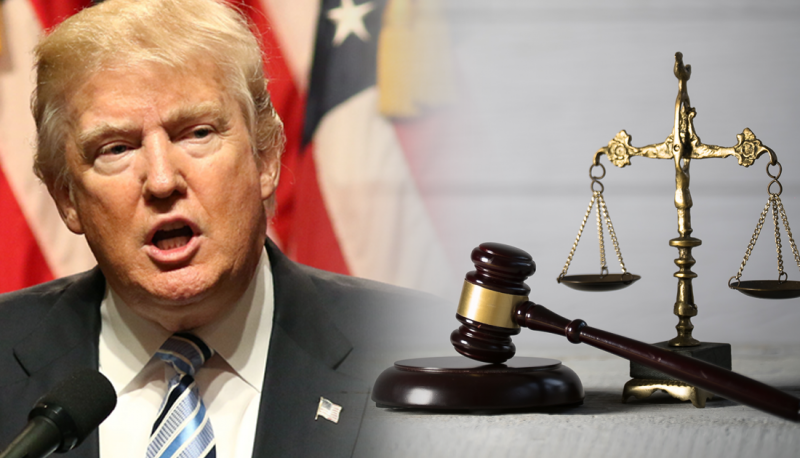“Confirmed Judges, Confirmed Fears” is a blog series documenting the harmful impact of President Trump’s judges on Americans’ rights and liberties.
Five Trump judges on the 9th Circuit—Judges Bennett, Nelson, Bade, Collins, and Lee—joined a dissent in Ming Dai v. Barr, arguing that the full court should reverse a panel decision that directed the Bureau of Immigration Appeals (BIA) to reconsider a request by a Chinese immigrant for asylum. Ming Dai had testified that he was “beaten, arrested, jailed, and denied food, water, sleep and medical care” by Chinese officials because he “tried to stop the police from forcing his wife to have an abortion,” but the BIA had denied asylum.
Ming Dai and his wife Li Ping Qin have been married and living in China for twenty years, and have a daughter who was born in 2000. When they learned that Qin was pregnant in 2009, they hoped to pay a fine and keep the child notwithstanding China’s “one child” policy. But Chinese officials disagreed and, after several months of argument, police and other officers came to the family’s home and announced that they were there to take Qin to the hospital for an abortion. When the couple resisted, Qin was dragged to the hospital and officers initially pushed Dai to the ground, handcuffed him, and “repeatedly beat him, causing substantial injuries.” He was then taken to a detention center, where he was mistreated for several days and subjected to “mental torture.” Upon his release, he learned that his wife was forced to have an abortion and have an IUD implanted. Although she kept her job (with a demotion), Dai was fired and told that it was because of the above “events.”
Several years later, Dai and his family came to the U.S. on tourist visas. Li Ping Qin and their daughter returned to China, so that Qin could ensure that their daughter went to school, help take care of her sick father, and return to her job. Upon their return, Chinese police went to the house looking for Dai “multiple times.” Dai stayed in the U.S. and sought asylum, stating that he also feared he would be “forcibly sterilized” if he returned.
Dai’s application was denied and he was ordered deported, and the BIA affirmed despite his appeal. Although neither the Immigration Judge (IJ) nor the BIA made a finding that Dai’s testimony was not credible, they determined that he had not met his burden of proof.
On a petition for review, a 9th Circuit panel ruled 2-1 that the case should be sent back to the BIA. Under long-established 9th Circuit precedent, the majority explained, the appellate court is required to treat the asylum applicant’s testimony as credible unless there is an explicit finding to the contrary by the IJ or BIA, the majority explained, and neither made such a determination. As a result, the majority found that Dai had established past persecution and eligibility for asylum, and remanded for the agency to withhold Dai’s removal and to exercise its discretion as to whether to actually grant asylum.
The majority of the full 9th Circuit decided not to rehear the case, but a number of judges dissented, including the five Trump judges, based on a dissent in the panel decision by Senior Judge Stephen Trott. The dissenters claimed that the majority’s decision was wrong because they interpreted a provision in the revised REAL ID Act as stating that the lack of an explicit finding that an asylum applicant’s testimony was not credible means only that the applicant has a “rebuttable presumption of credibility on appeal,” and that the revised law had overruled the 9th Circuit’s precedent that the court must treat the applicant’s testimony as credible when the IJ or the BIA has not made an explicit adverse credibility finding.
But as the panel majority opinion written by the late Judge Reinhardt had explained, the 9th Circuit has reaffirmed its precedent even after the REAL ID Act provisions at issue, and one other federal appeals court has ruled that way as well. “Properly understood,” the majority went on, the provision “applies only to appeals to the BIA, not to petitions for review in our court.” As Reinhardt noted, it is “not too much to ask of IJs and the BIA that they make an explicit adverse credibility finding before deporting someone” like Dai.
As a result of the panel decision and the 9th Circuit decision not to reconsider the case, Ming Dai will at least have the opportunity to get asylum and avoid forced sterilization and other harm upon deportation to China. If the dissenting view of the Trump judges and others had prevailed, however, he would have been sent back to China, and the 9th Circuit precedent that helps protect asylum seekers would have been overturned.

